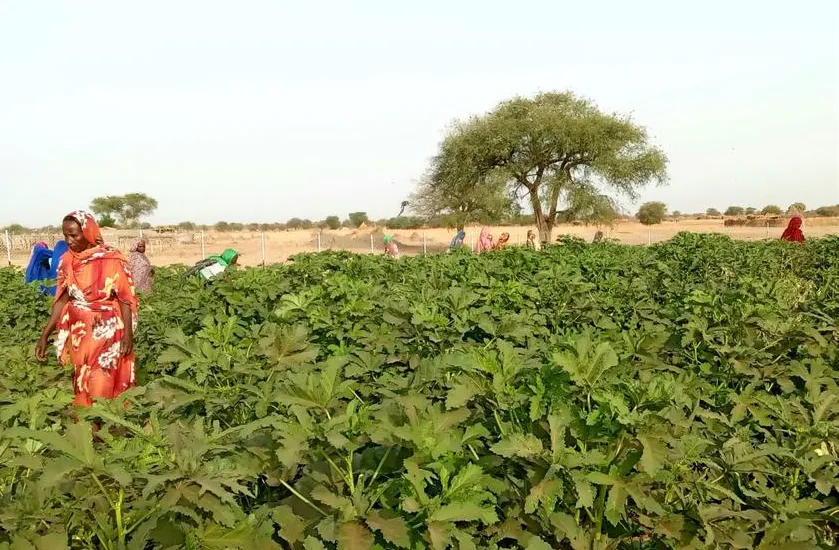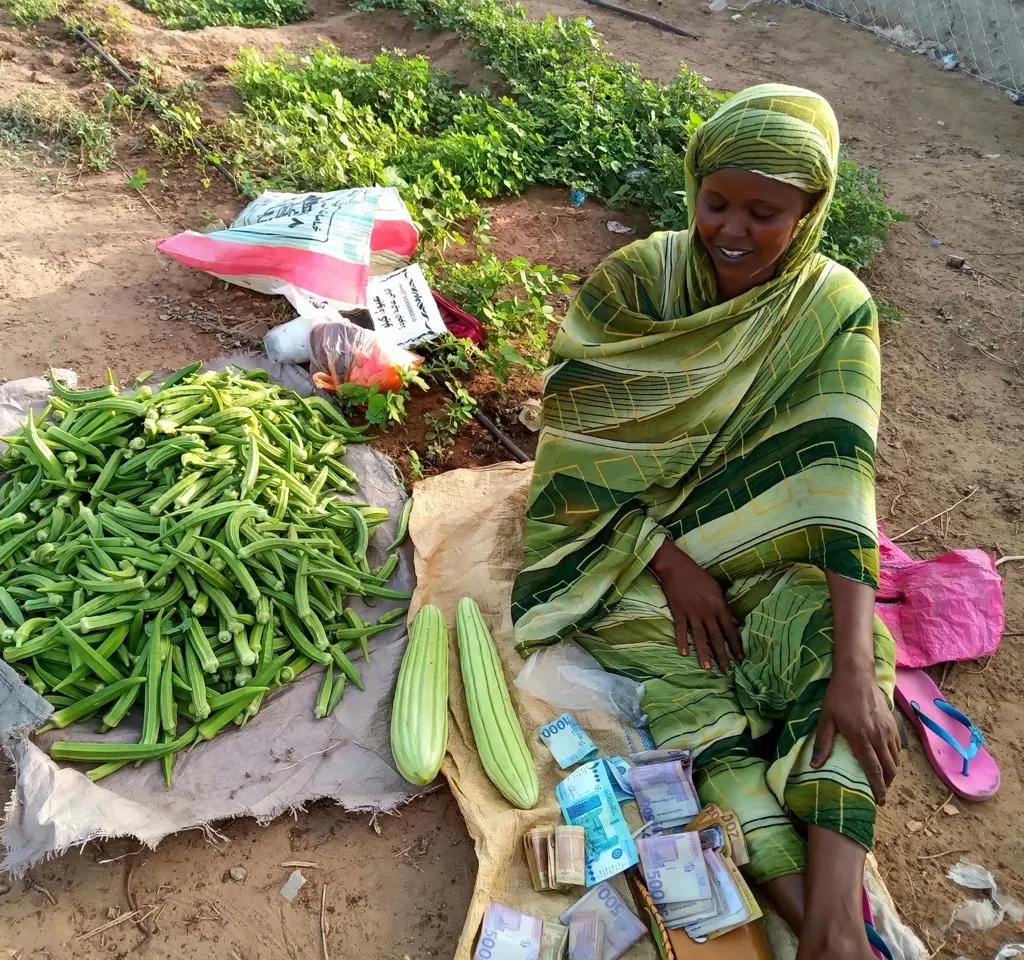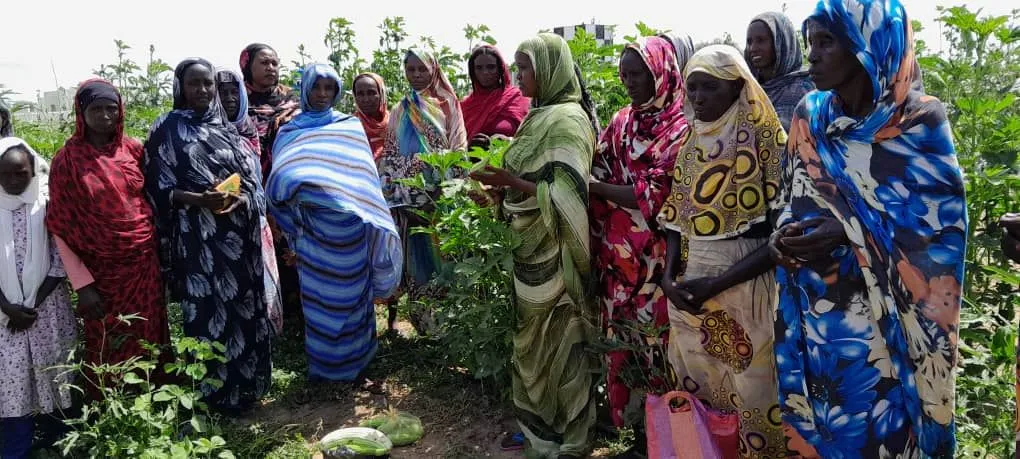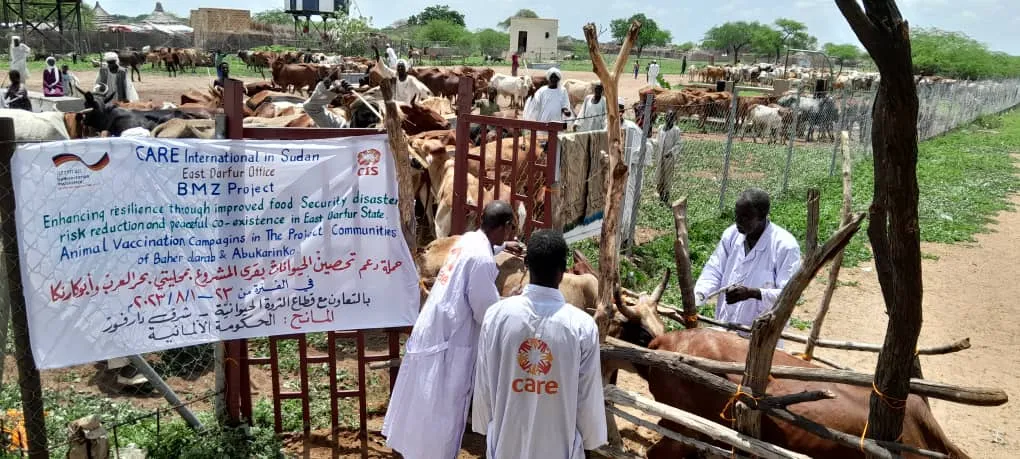Despite the hard work, women get nothing for themselves and they even have to ask for money to buy their basic needs, including dignity kits. Hawa, a 32-year-old mother of five from Bahar Alrab, has experienced this her whole life.
“For years, me and other young women villagers like me work hard all the day in the family farms,” she says. “However, when the harvest is sold in the market, we are given nothing.”
According to the Council on Foreign Relations, the now seven-month conflict in Sudan has killed more than 10,000 people and displaced 5.6 million. Eighty percent are internally displaced while hundreds of thousands have fled to unstable areas in Chad, Ethiopia, and South Sudan. This has led to an influx of displaced people in regions like East Darfur, making daily life more difficult for all.
‘Today is a different day’
But Hawa’s agricultural returns have begun to change, along with those of thousands of others, through a CARE Sudan program, funded by the German Ministry of Economic Cooperation and Development, which helps women establish vegetable gardens for both food and income, and has also assisted herders with veterinary care.
The program, implemented in South and East Darfur since September 2021, targets 23,900 vulnerable and conflict-affected households (119,500 people) in four largely agrarian, traditional areas in the two states, and is planned to run until August 2025.




